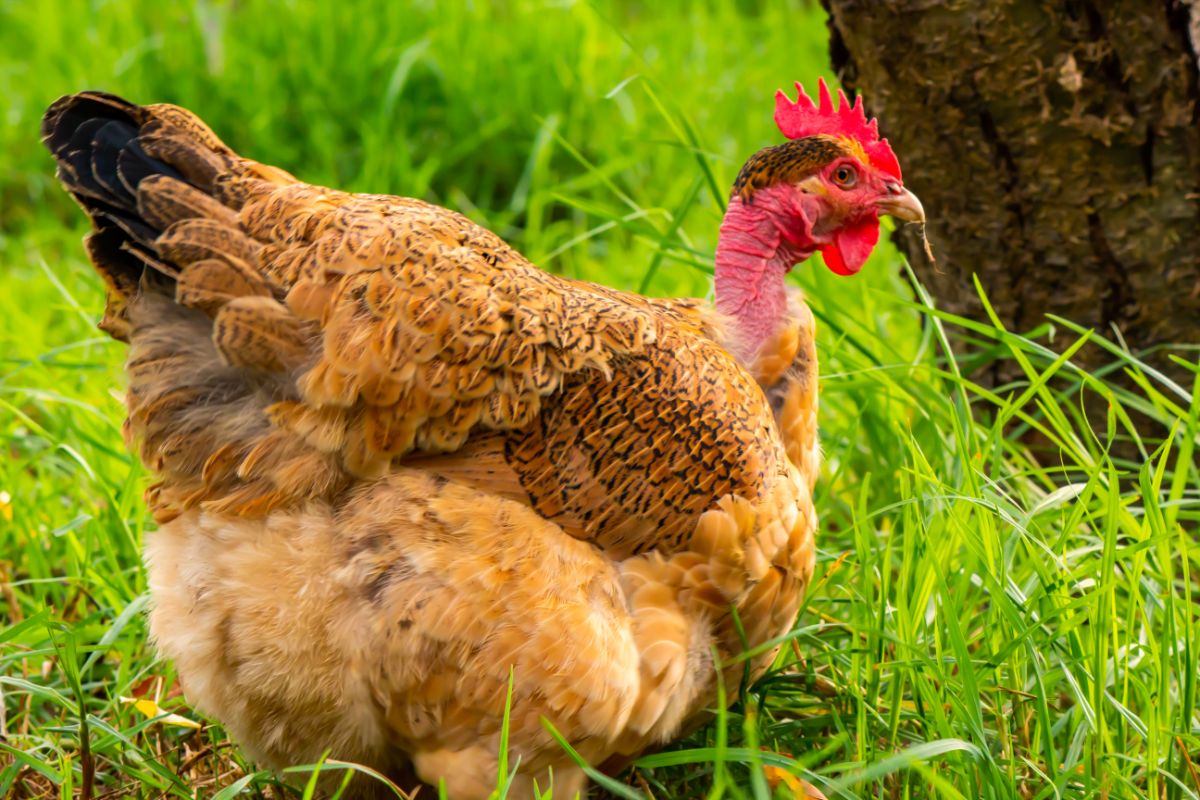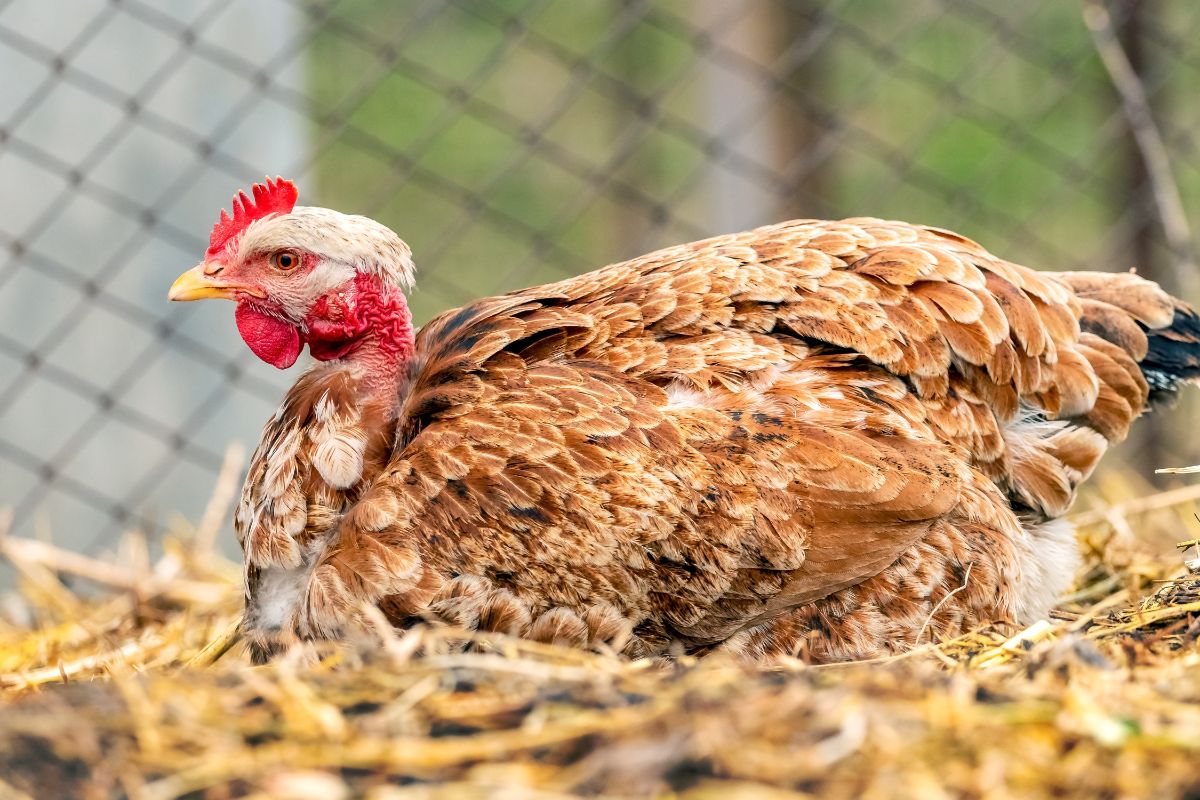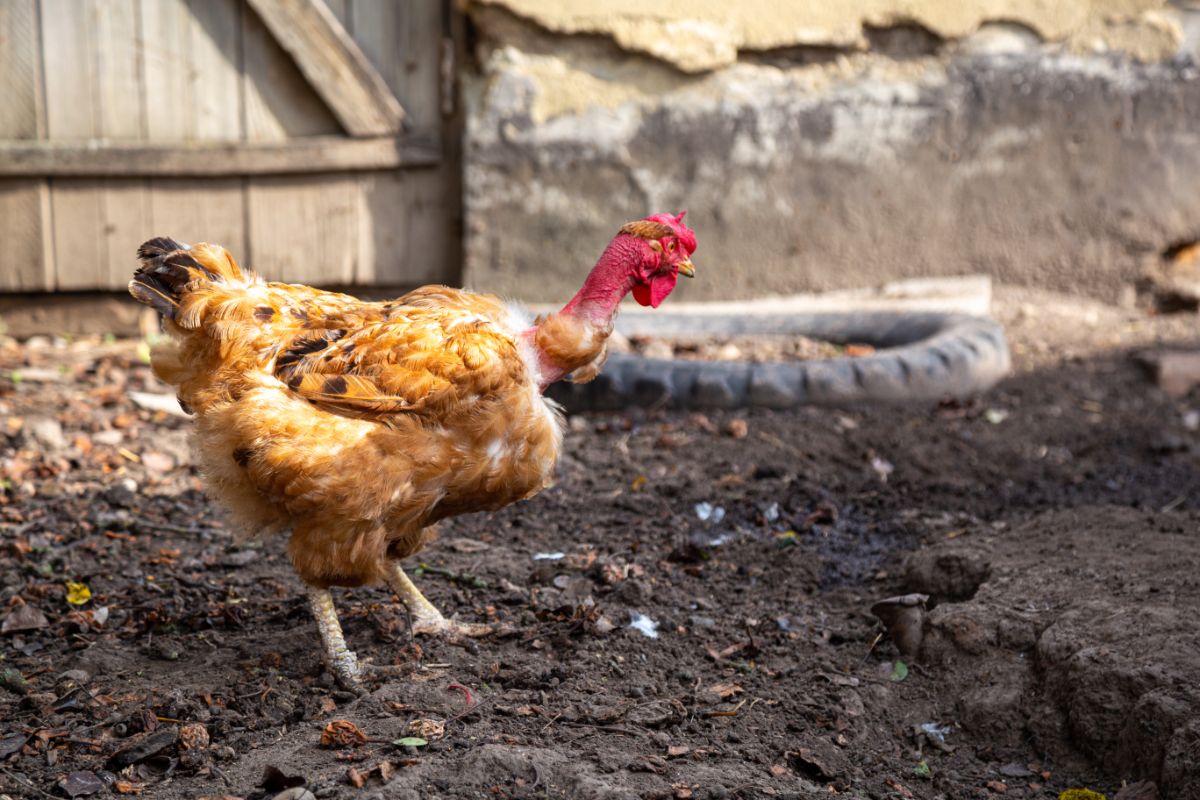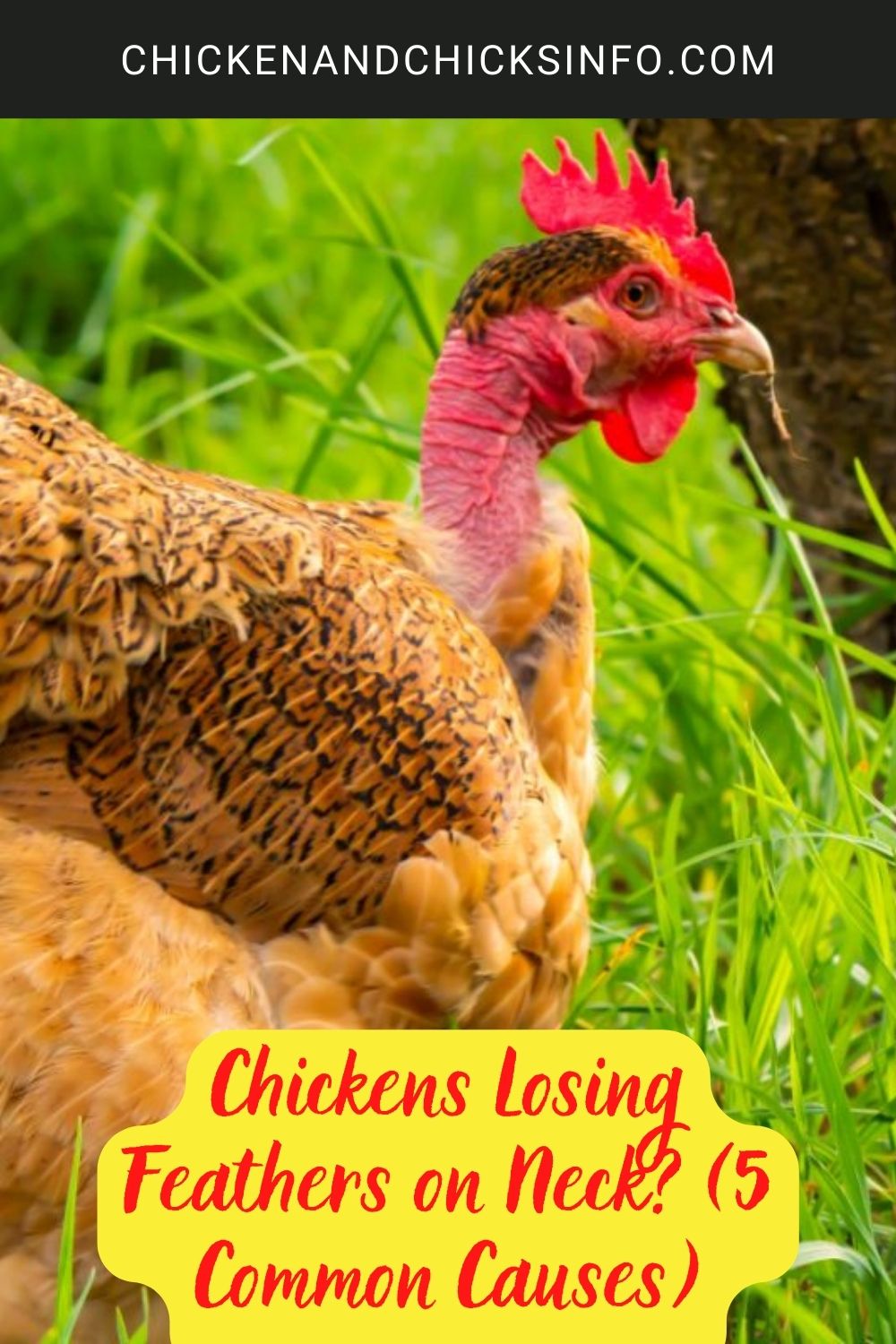
If you notice your chickens are losing feathers on or around their necks, there could be a number of reasons;
Molting, mating, bullying, poor nutrition, and parasites are five of the most common causes.
In this article, I’m going to help you identify the reason why your chicken(s) are losing feathers on their necks, and what you can do to resolve it:
Jump to:
Why Are My Chickens Losing Feathers on Their Necks? (5 Reasons)
Bullying
Chickens tend to form something called a ‘pecking order’ within a flock, which is like a hierarchy in terms of the most dominant hens.
The hens at the top will often pick on the chickens lower down in the pecking order. It’s not fair, and it’s never something you want to see, but it’s something that naturally happens.
Adding one or more roosters can also change the pecking order. Roosters are more aggressive than hens and can do some serious damage with their beaks, claws, and spurs.
Poor Nutrition
Chickens have specific dietary requirements to maintain optimal health, which should be easily met by feeding them a good quality chicken feed.
If a chicken isn’t getting enough quality feed, or maybe they’re ill and not able to eat or absorb the nutrients, it can result in feather loss.
An experienced poultry vet will be able to advise you if your chicken is suffering from nutrient deficiency.
Parasites

Parasites are one of the main health concerns when raising backyard chickens. There are a number of lice, mites, and other parasites that can cause a chicken to lose feathers.
You can see most parasites with the naked eye by taking a close look at a chickens’ skin and feathers, so that’s the first place to start.
If mites are the cause, there are some very effective treatments on the market that will help you get your hen back to 100% and their feathers will regrow.
Mating
When hens and roosters mate, it’s a quick event - but can be quite traumatic for the hen.
Roosters jump on the back of a hen and pin them down. They have sharp claws, and commonly pull out feathers along a chicken’s back and neck.
Patchy feathers are often a sign of over-mating, too. You’ll likely need to remove the hen to let them recover.
Molting
Molting is the most common cause of feather loss. Chickens molt once a year, during this process they lose all of their feathers and regrow new ones.
Sometimes the molting process causes chickens to have patchy feathers for a while, and this could be the reason why your hens are losing feathers from their necks.
Make sure you’re providing a protein-rich diet during the molting phase as feathers require protein. You will likely see a reduction in egg production during this period, too.
How Do I Know if My Chickens Have Mites?

Mites and lice are a common problem for chickens.
It’s largely unavoidable, too, so don’t blame yourself or feel like you could have done any more to avoid parasites getting into your flock.
Having patchy feathers is usually a sign that a hen is over-preening and plucking out her feathers while attempting to relieve the discomfort.
The easiest way to confirm if your chicken has mites is to take a good look. Spread their feathers apart and look closely down to their skin.
You will almost certainly see little black dots, or even small lice moving around on their skin or on the barbs of their feathers.
You should also be able to see red dots of blood or reddening of the skin where the hen is irritated.
It’s easier to see on some chickens than others depending on the severity of the infestation and how thick their plumage is.
Other symptoms to keep an eye out for along with losing feathers are pale combs, poor egg production, and even anemia if the hen is losing a lot of blood.
The good news is that there are some effective treatments for parasites.
It may depend on the type of parasite your hen has as to what treatment you use, so you may have to get a vet to confirm the exact parasite.
There is no question that food grade Diatomaceous Earth is the most effective - and safe - product for treating mites and lice on chickens though.
You can find out more about how effective Diatomaceous Earth is here, as well as where to buy it and how to use it.
Why Do My Chickens Have Bare Necks?
Having a chicken with a completely bare neck is unusual and not very common.
If it’s not due to one of the reasons covered above, I recommend you make sure you don’t have a breed of chicken that has a bare neck!
For example, there is a breed of chicken called the Transylvanian naked neck chicken, which as their name makes fairly obvious, they have no feathers on their necks.
It’s a long shot, but something I thought worth mentioning.
Why Is My Rooster Losing Feathers Around His Neck?
If it’s just your rooster that is losing feathers around his neck and it doesn’t seem to be affecting your hens, one thing you can be sure of is that it’s not due to over-mating.
It’s also very unlikely to be due to bullying unless you have other roosters.
I would say that either parasites or molting are the most likely causes. It’s still something either you or an avian vet will need to investigate though, you can take guesses.
In Summary
It can be alarming when you see a chicken is losing feathers on its neck, but it’s not that uncommon and there is often an explanation that makes sense.
As long as you take the time to find out what’s causing the feather loss, there is always a good chance you can find a quick and effective solution.





